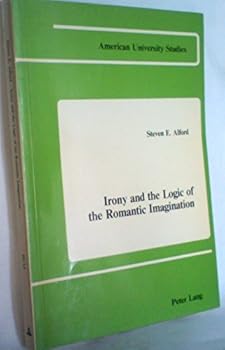Irony and the Logic of the Romantic Imagination
This study examines romantic irony as a principle of style in the work of Friedrich Schlegel and William Blake. The first half traces Schlegel's critique of the principles of identity and noncontradic- tion, his development of a romantic logic, his view of dialectic and rhetoric, and how romantic irony is a stylistic mirror of the results of his critique of formal logic. These findings are tested in a close reading of his essay ber die Unverst ndlichkeit (1800). The second part examines the suggestive relation between Blake and Schlegel's views on logic, dialectic, and rhetoric, and uses these views as the basis for a reading of The Marriage of Heaven and Hell (1794). Both thinkers support the conclusion that romantic irony as a principle of style has two moments which can be characterized hermeneutically as negative dialectical and performative.
Format:Hardcover
Language:English
ISBN:0820401102
ISBN13:9780820401102
Release Date:December 1984
Publisher:Peter Lang Publishing
Length:177 Pages
Customer Reviews
0 rating





